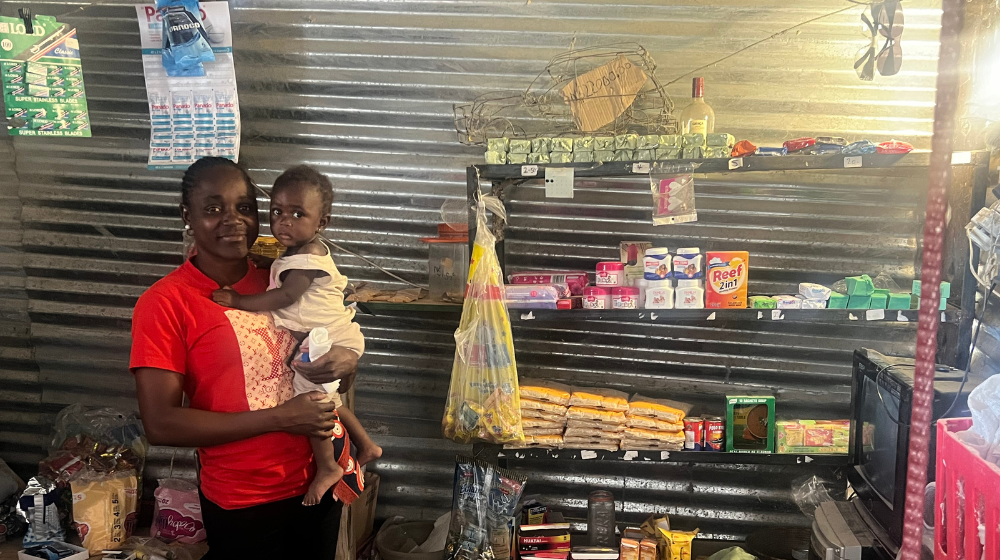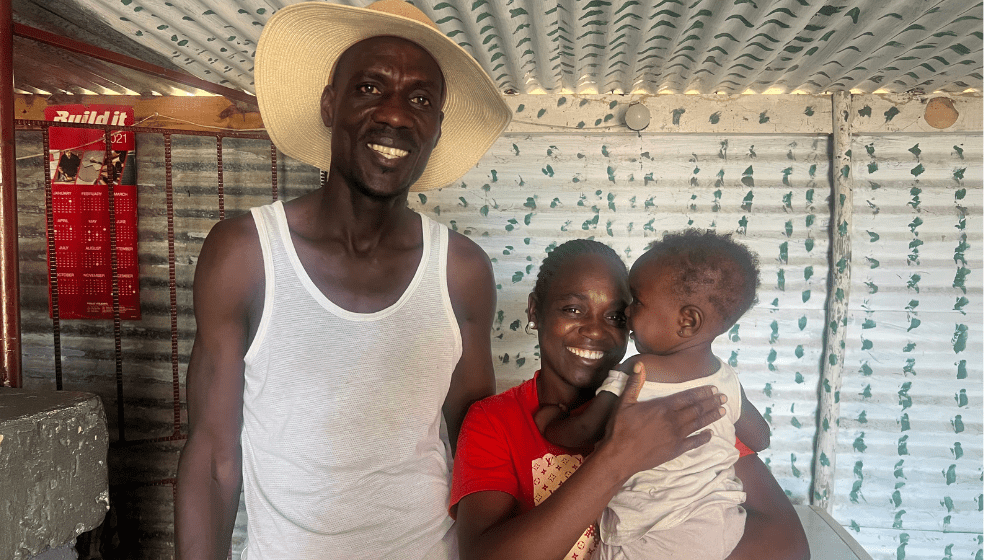
OMUTHIYA, Namibia - When Indileni Erasmus (31) decided to start using contraceptives eight years ago, her motivation was clear – to space her children and be able to provide for them.
Access to information and contraceptive services, she believes, empowers a woman to confidently shape the life she desires – pursuing a career or studies, and determining when to start a family.
"I became pregnant when I was 23 years old. Immediately, I decided to start using contraceptives to avoid another immediate pregnancy, plan for my family, and be able to take care of my children," shared Indileni, a married mother of two boys aged 8 and 4, and a girl of eleven months old.
Because of contraceptives, my husband and I were able to plan for our family and find ways to provide for our children.
"Because of contraceptives, my husband and I were able to plan for our family and find ways to provide for our children."
Both Indileni and her husband have opened a tuck shop in their neighbourhood, selling essential items such as food, soft drinks and hygiene products. The income generated from their business enables them to provide for their family.
Indileni was one of the 44 women from her village of Omutsegwonime in Omuthiya who participated in a financial literacy training conducted by the United Nations Population Fund (UNFPA). The training took place from 6 to 8 November 2023 and was conducted in partnership with the Financial Literacy Initiative (FLI), Kongalend Financial Services Rural, and the Society of Family Health (SFH).
During the literacy training, Indileni had the opportunity to visit the mobile health clinic, a service also facilitated by UNFPA and its partners, where she received her follow-up contraceptive pills. This comprehensive approach addressed not only the business aspects of her and her fellow community members but also their health and well-being. The health services provided by the mobile clinic included vital check-ups, consultations, and access to necessary resources.
In Namibia, despite one in two women between the ages of 15 and 49 using a method of contraception, the country still falls short in meeting the needs of many women. This unmet need is most pronounced among women in the poorest 20% of households. Without adequate access to contraception, poor women, particularly those who are less educated and live in rural areas, are at heightened risk of unintended pregnancy.
UNFPA supports access to sexual and reproductive health services, including HIV testing, treatment and prevention as well as gender-based violence response and prevention services for communities across Namibia. Between January and September 2023, the agency and its partner, SFH, reached nearly 24,000 people with essential sexual and reproductive health information and care.
"The financial literacy training opened up new possibilities for my business, but the health services added another layer of support I needed," shared Indileni.
"It's a holistic approach that considers every aspect of our lives, and I am genuinely thankful for that," she added.


